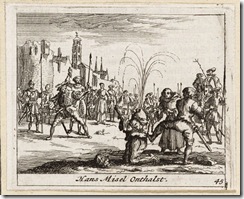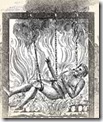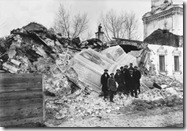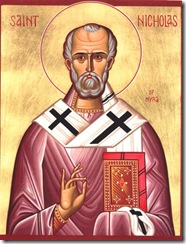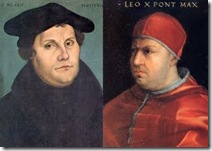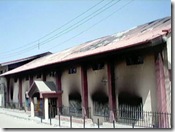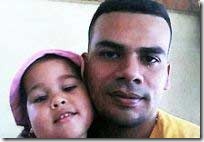The Voice of the Martyrs in Canada is a member of the Religious Liberty Partnership (RLP), a collaborative effort of Christian organizations in over a dozen countries focused on religious liberty. Founded in the spring of 2007, the RLP seeks to more intentionally work together in addressing advocacy and in raising the awareness of religious liberty issues globally.
Two years after the first outbreak of mob violence against Christians in Kandhamal district, Orissa state, India, the RLP remains deeply concerned for the situation. As a collaborative effort of Christian organizations focused on religious liberty, the RLP is urging its members to call upon Christians to unite in continued prayer for justice, reconciliation and peace in the area, and to encourage the Indian government to do all in its power to bring this about.
During the week of Christmas 2007, Christians belonging to Dalit and adivasi communities in Kandhamal were targeted in a wave of violence, which resulted in the widespread destruction of property. Then, in August 2008, when Swami Lakshmananda Saraswati and four of his followers were condemnably assassinated, allegedly by Maoist insurgents, the Christians were blamed, and became targets of ferocious reprisals. This resulted in the worst communal violence suffered by Christians in the history of post-independence India. At least 75 people have been confirmed as dead, and over 50,000 were forced to flee their homes. More than a year later, thousands of victims of violence are still suffering and waiting for justice.
The RLP welcomes the efforts made by the Indian government and Orissa state government to restore security and bring justice, reconciliation and peace. However, deep concerns remain about the continuing challenges. The government relief camps are now closed, yet a large proportion of victims have been unable to return to their villages for fear of death or forcible conversions to Hinduism. Many are living in grievous poverty in makeshift camps, often with no regular means of sustenance. Although compensation has been delivered to many victims, often it does not match their needs. Victims are continuing to receive threats from the perpetrators of violence, witnesses are facing intimidation by mobs outside courtrooms, and there is widespread fear of the danger posed by impunity. Hundreds of cases have not been registered properly by police, and therefore will not be subject to investigations or prosecutions. The future of the children of victims is also at risk. Many are fearful of attending school, and a large proportion of those sitting their tenth grade examinations have been failed, largely as a consequence of the severe disruption during the past year.
Mervyn Thomas, CEO of Christian Solidarity Worldwide in the UK and Chairman of the RLP said, “We urge that justice must be served in Kandhamal: it will be crucial for the restoration of peace and stability in the area. The wheels of justice are turning slowly, but the authorities need to tackle the significant challenges facing the judicial system. India is famous for her diversity and pluralism, and we look forward to the restoration of inter-communal harmony in this area.”
The RLP also supports a call to prayer for the victims of violence, from Mgr. Raphael Cheenath, Catholic Archbishop of Cuttack-Bhubaneswar in Orissa, who requests that churches around the world use the following prayer for Orissa on Christmas Day, 2010:
Gracious Father, Lord of all the earth, we praise you for the gift of Jesus Christ, sent into the world to break down the dividing walls of hostility. Have mercy upon those in Orissa who are suffering. Give them the peace and the justice that they crave, and cause the walls of bitterness and hatred in Orissa to be torn down. Comfort those who have been bereaved, counsel those who have been traumatised, provide for those who have lost everything. Give them the grace to forgive and confidence in your gracious favour. Do not let us forget them, our brothers and sisters in Christ, as we celebrate the coming of the Prince of Peace and look forward to his coming again in glory.
[For more information on the Religious Liberty Partnership, contact Brian O’Connell, RLP Facilitator at: +1 425-218-4718 or Brian@REACTServices.com]



 One of the greatest problems for an underground fighter is to know how to fill up his solitude. We had absolutely no books. Not only no Bible, but no books, no scrap of paper, and no pencil. We never heard a noise, and there was absolutely nothing to distract our attention. We looked at the walls, that was all. Now normally a mind under such circumstances becomes mad. …I can tell you from my own experience how I avoided becoming mad, but this again has to be prepared by a life of spiritual exercise beforehand. …
One of the greatest problems for an underground fighter is to know how to fill up his solitude. We had absolutely no books. Not only no Bible, but no books, no scrap of paper, and no pencil. We never heard a noise, and there was absolutely nothing to distract our attention. We looked at the walls, that was all. Now normally a mind under such circumstances becomes mad. …I can tell you from my own experience how I avoided becoming mad, but this again has to be prepared by a life of spiritual exercise beforehand. …




